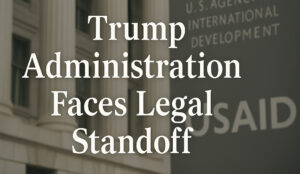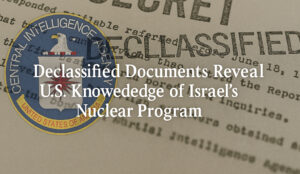In a historic and coordinated appeal, more than 230 civil society organizations across 25 countries - including F-35 program partners - have issued a sweeping demand for an immediate halt to all arms transfers to Israel, with a central focus on the joint F-35 fighter jet program.
The call comes amid ongoing revelations of war crimes and civilian devastation in Gaza, where over 46,000 Palestinians have been confirmed killed and at least 10,000 more remain buried under rubble, following Israel’s 466-day military assault.
Despite these figures - and findings from the International Court of Justice (ICJ), Amnesty International, and Human Rights Watch identifying acts of genocide and extermination - F-35 components continue to be exported to Israel under legal loopholes and policy double-speak.
🔧 What Is the F-35 Programme?
The F-35 is a U.S.-led, multinational fighter jet development and production initiative.
Partner countries include the United States, United Kingdom, Canada, Denmark, the Netherlands, Norway, Italy, and Australia.
Each of these nations contributes parts, components, and technology to the production of the aircraft - including variants like the Israeli-customized F-35I "Adir."
Because of this shared supply chain, activists and human rights lawyers argue that all participating countries are complicit when F-35s are used to bomb civilian targets.
💥 The Case Against Arms Transfers
The letter points to damning findings:
- A June 2024 UN report identified that F-35s dropped U.S. and UK-made 2,000-lb bombs on civilian sites in Gaza.
- In July, a strike on a "safe zone" in Al-Mawasi killed 90 Palestinians in a single attack.
- A January 2024 ruling by the ICJ called on Israel to take measures to prevent genocide.
- The ICC issued arrest warrants for Israeli Prime Minister Benjamin Netanyahu and former Defense Minister Yoav Gallant for crimes against humanity.
Despite all this, most F-35 partner states have only partially restricted exports - and many continue supplying components either directly to Israel or "indirectly" via the United States.
📉 Legal Evasions and Ethical Collapse
Some governments - like the UK - claim to have suspended arms exports to Israel, yet allow existing licenses to proceed.
The UK even admitted that the F-35 component exemption was so strategically important that it would be upheld "regardless of further evidence of serious breaches of IHL."
In the Netherlands, the Hague Court of Appeal ordered the Dutch government to suspend all exports of F-35 parts to Israel - a decision now pending before the Supreme Court.
Australia, facing domestic legal action, quietly amended or lapsed 16 defense export licenses to Israel.
Still, transparency is lacking.
Campaigners say these "carve-outs" make a mockery of international law.
📜 International Legal Obligations
Every F-35 partner country except the U.S. is a State Party to the Arms Trade Treaty (ATT).
The ATT prohibits the export of arms - including parts - where there is a clear risk they could be used to violate international humanitarian law.
States are also bound by:
- Common Article 1 of the Geneva Conventions
- The Genocide Convention
- Customary international law requiring due diligence in arms transfers
In April 2024, the ICJ reiterated that arms suppliers to Israel risk violating the Genocide Convention themselves if they continue supplying weapons in the face of overwhelming evidence of atrocities.
🧨 Human Toll of the F-35 in Gaza
F-35 strikes in Gaza have been linked to:
- The destruction of over 69% of all structures in the territory
- The forced displacement of over 90% of the population
- Repeated targeting of hospitals, schools, markets, and aid distribution centers
Each 2,000 lb bomb dropped from these jets can devastate an area the size of 58 football fields.
These strikes are not isolated events, but part of a sustained pattern of warfare characterized by legal experts as "indiscriminate and disproportionate."
🧑⚖️ Legal and Political Fallout in F-35 Nations
Legal actions are now active in several countries:
- UK: Global Legal Action Network and Al-Haq have brought a judicial review challenging the F-35 exemption.
- Netherlands: The case brought by Oxfam Novib, PAX, and The Rights Forum may result in a binding legal precedent.
- Australia: Legal submissions by Al Mezan and others prompted a partial review of export permits.
- United States: Activist pressure is growing, as the U.S. remains the lead supplier of aircraft, munitions, and coordination.
- Denmark and Canada: Lawsuits and parliamentary pressure continue to mount.
🌍 A Global Demand for Action
The signatories to the letter include major human rights groups - Amnesty International, Oxfam, Human Rights Watch, and Center for Constitutional Rights - as well as faith-based networks, peace organizations, legal associations, and civil society coalitions from every F-35 partner nation.
They argue that current policy has effectively excluded Palestinians from legal protections - treating them as "exceptions to law."
The letter’s conclusion is unequivocal:
"All F-35 partners must do everything in their power to bring the programme in line with their legal obligations and immediately halt the direct and indirect transfer of F-35 parts and components to Israel."






